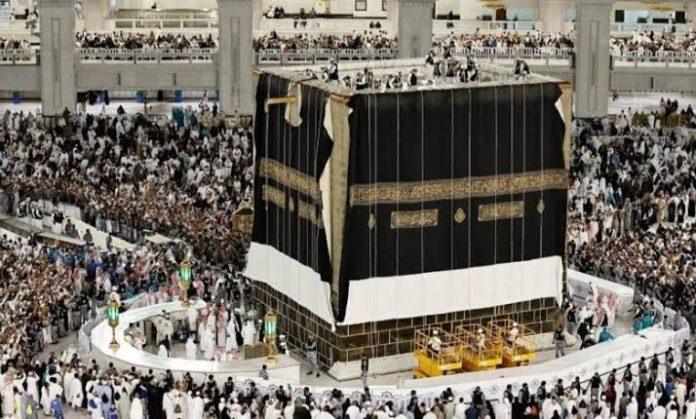In preparation for Hajj 2024, authorities in Makkah have raised the Kiswa, which is the cloth that covers the Holy Kaaba. The Kiswa was elevated by three meters, and the lower part was covered with white cotton cloth (Ihram) to protect it from damage. This important annual ceremony is carried out by specialists from the King Abdul Aziz Complex.
The Kiswa is traditionally replaced on the 9th of Dhul-Hijjah. However, since 2022, this tradition has changed, and the replacement now takes place on the first day of Muharram. The black Kiswa is beautifully adorned with Quranic verses written in gold-plated thread.
Making the Kiswa is a meticulous process. It is crafted from 670 kilograms of raw silk, which is then dyed black. To decorate it, 120 kilograms of gold and 100 kilograms of silver threads are used to weave the intricate Quranic verses and patterns.
This ceremonial raising of the Kiswa is a significant event, marking the preparations for the annual Hajj pilgrimage. It symbolizes respect and care for the Holy Kaaba, ensuring that the sacred cloth remains intact and undamaged by the large crowds of pilgrims that visit Makkah during this holy period.
The King Abdul Aziz Complex, where the Kiswa is produced, is known for its dedication to preserving the quality and sanctity of the Kiswa. The complex employs skilled artisans who follow traditional methods to ensure that each Kiswa is made to the highest standards. This annual tradition highlights the deep reverence and meticulous care taken in maintaining one of the most sacred sites in Islam.


